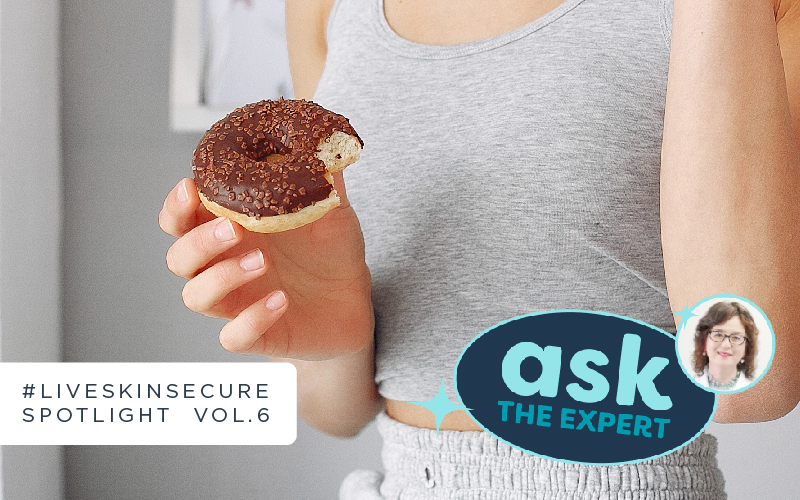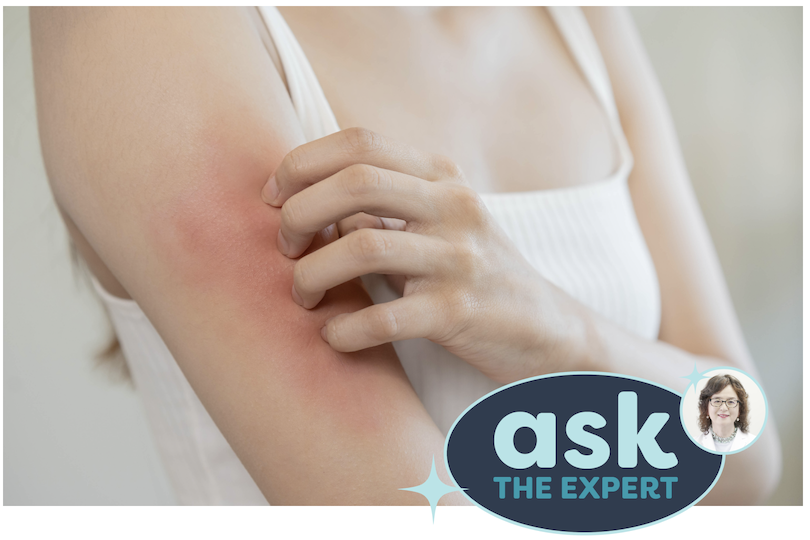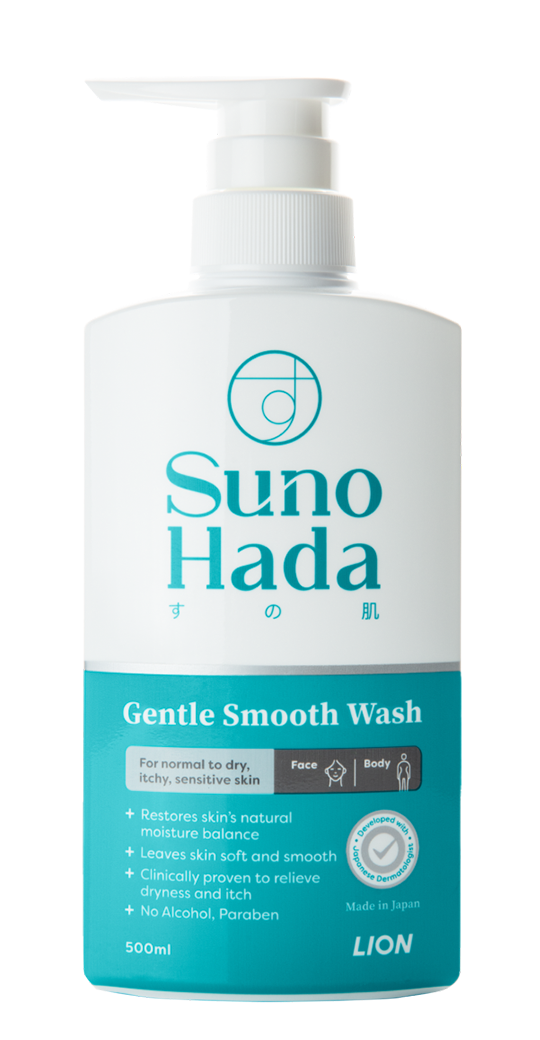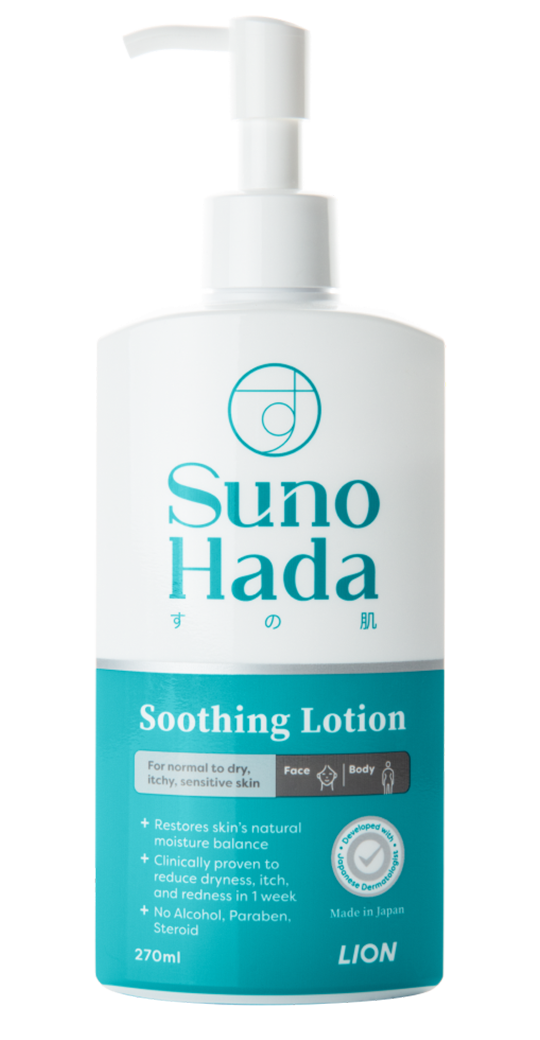HOW DIET CAN AFFECT YOUR SENSITIVE SKIN BY DR. YOKOYAMA
May 31, 2023

Expert Dermatologist and Co-developer of SunoHada Dr. Yokoyama answers your sensitive skin questions in this month’s Skinsecure Spotlight.
If the eyes are the window to the soul, our skin is the window to our wellbeing.
The relationship between diet and skin sensitivity is much overlooked when it comes to skin health. As the largest and one of the most important organs in the body, skin needs to be taken care of, both inside and out, to ensure it stays strong, protective and has the power for continuous healing and renewal.
Skin irritants can come from all kinds of sources, and so when we experience bouts of irritated skin like dryness and itch, it is essential to review your food intake among the other triggers like fabrics, environment etc.
Q.
What foods should I avoid for my sensitive skin?
from @rennielelee
A.
There are certain foods that increase itching when eaten by people with sensitive skin (those with eczema or hives).
Food-induced itching can be broadly divided into allergic and non-allergic itching.
-
The former are foods that itself is allergens and cause an allergic reaction. Typical examples are eggs, milk, wheat, buckwheat, and peanuts.
-
The latter are caused by containing histamine-like substances that cause itching. Typical foods include mackerel, tuna, salmon, cod, squid, octopus, shrimp, clams, pork, salami, buckwheat, bamboo shoots, matsutake mushrooms, potatoes, spinach, eggplants, tomatoes, wine, beer, strawberries, and chocolate.
People with sensitive skin (those with eczema or who have hives) experience increased itching when they eat these foods. In addition, it is necessary to be aware that pigments, preservatives, and additives contained in food may also induce itching.
Foods that cause allergic reactions vary from person to person, so it is important to first know what foods you are allergic to.
If you suspect that food is causing itching, keeping a food diary may help you understand the association with worsening symptoms. We recommend this method for mothers who are concerned about the relationship between their child’s skin condition and food
Be careful not to eat too many foods that make your skin rough or make acne worse.
The five major nutrients, protein, fat, sugar, vitamins, and minerals, are all essential nutrients for the body.
However, consuming too much sugar and fat can cause skin irritation.
When taken in excess, foods with a lot of sugar and fat, and foods containing a lot of stimulants such as caffeine and spices, can lead to excess sebum secretion, which can worsen rough skin and acne.
But, over-restricting your diet, saying “I don’t eat it because it’s not good for my skin,” can actually cause stress for the skin. Be sure to take in the necessary nutrients properly in your daily meals, and try to “not eat too much” and “eat moderately” when it comes to rich foods.
What do you pay attention to in your daily diet for healthy skin?
- Eat 3 times a day with well-balanced meals.
Let’s take a well-balanced intake of essential fatty acids, dietary fiber, and vitamins that are necessary to keep the skin moisturized and exhibit healthy functions, as well as the protein that forms the basis of the body’s cells.
- Hydration is also important.
It is said that we need about 1.5L of water per day. But, since the amount of water that can be absorbed at one time is limited, I recommend to drink a glass of water (200-250mL) divided into 6-8 times. A lack of water in the body can lead to poor blood circulation in the periphery (skin surface), causing dryness and rough skin.
-
To prevent rough skin, be careful about meal times.
If you eat late at night, your digestive system must be active even while you are asleep, resulting in poor sleep quality. Sleep is an important factor in keeping your skin healthy. To prevent skin irritation, avoid eating late at night.
A good daily skincare routine with a balanced diet, plenty of water, and a little helpful know-how can go a long way in helping you keep your skin healthy & happy from the inside out.
For persistent skin conditions, always refer to your GP or dermatologist.
See best body wash for sensitive skin and moisturizers for dry and sensitive skin.
Other Articles
-

HAZE AND SENSITIVE SKIN: PROTECTING THE SKIN BARRIER BY DR. YOKOYAMA
-

BEST CLOTHING CONSIDERATIONS FOR YOUR SENSITIVE SKIN BY DR. YOKOYAMA
-

5 TIPS FOR HEALTHY, HAPPY SKIN WHILE TRAVELING
-

DECODING KEY TRIGGERS OF YOUR CHILD’S SENSITIVE SKIN BY DR. YOKOYAMA
-

HOW WEATHER IMPACTS YOUR SENSITIVE SKIN BY DR. YOKOYAMA




